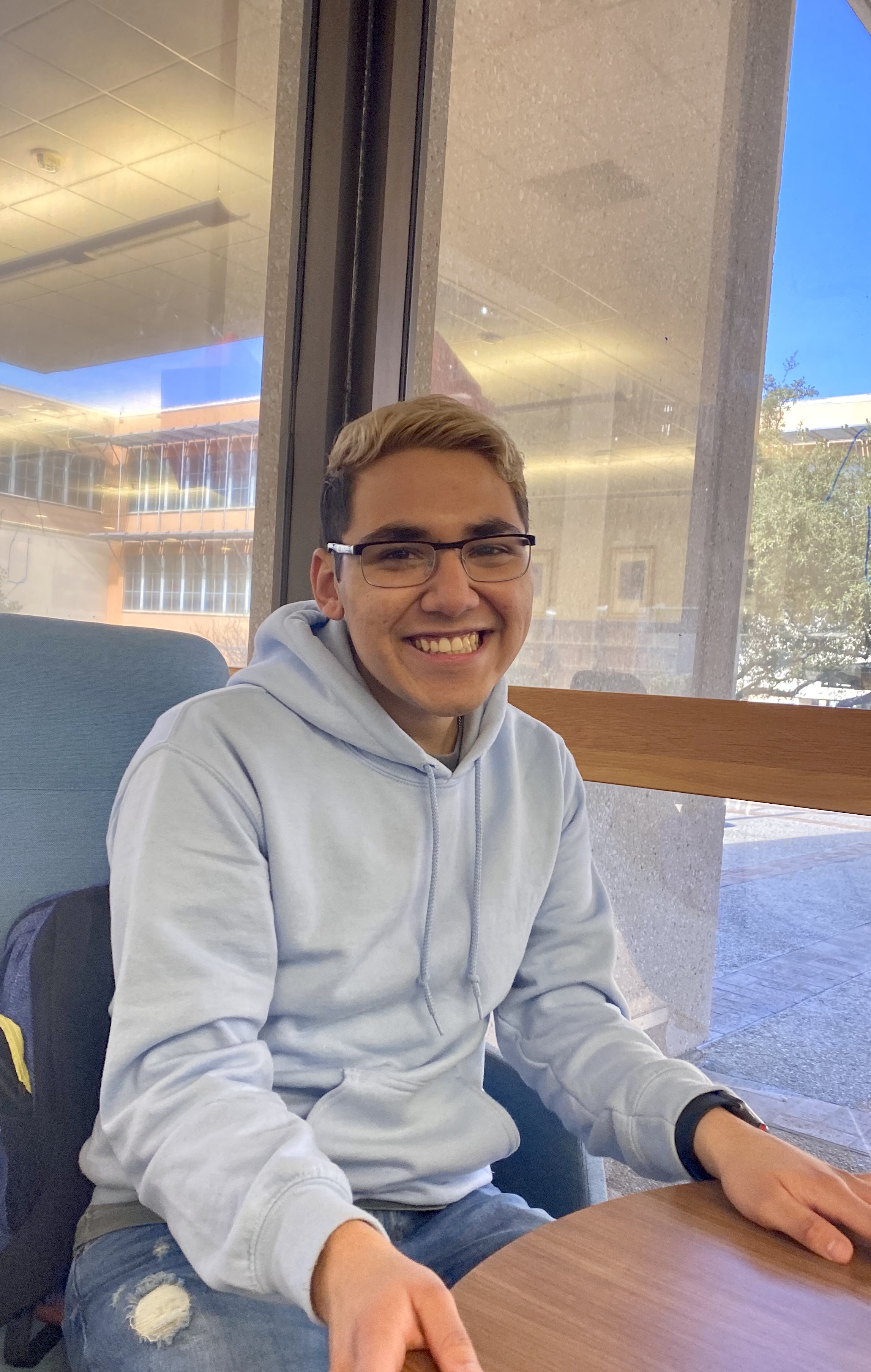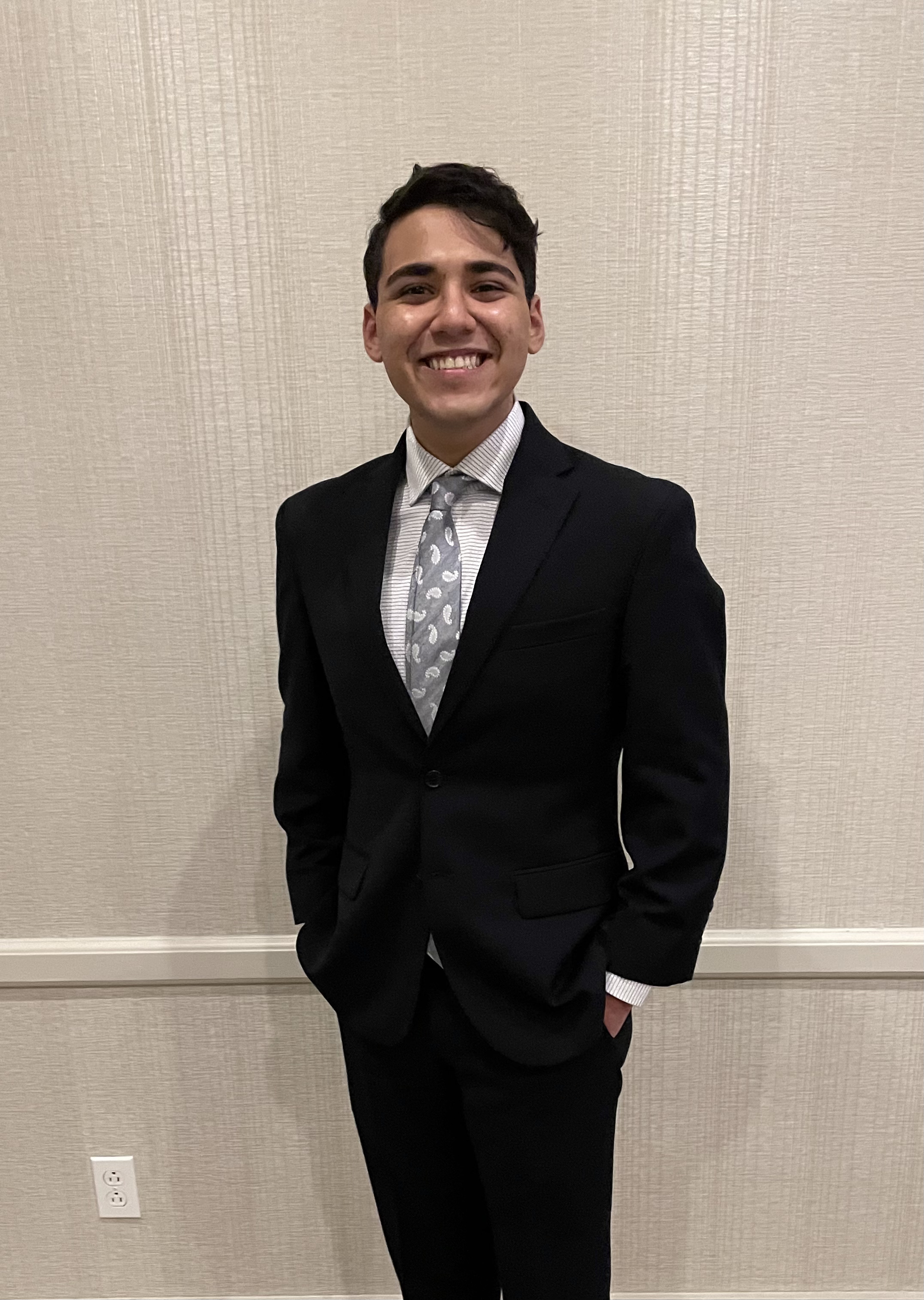Posted on October 25, 2021 by Amanda Cerreto
October 26, 2021 - When one thinks of a STEM conference or exhibition, often what comes to mind is groups of students working on code, building robotics or solving complex equations. Rarely would a public health scholar be considered among that group - but Michael Segovia '23 has shown everyone differently.
 At the
Great Minds in STEM
(GMis) Conference this October, Segovia presented his assessment on how social networks influence levels of diabetes distress among young adults.
At the
Great Minds in STEM
(GMis) Conference this October, Segovia presented his assessment on how social networks influence levels of diabetes distress among young adults.
"It involved reading a lot of articles and finding certain gaps about how social needs connect with diabetes and diabetes distresses," he said.
Segovia knows he would not have made it to the conference if not for his participation in the Virtual Research Experience for Undergraduates (vREU) program, hosted by the Computing Alliance of Hispanic-Serving Institutions (CAHSI).
The vREU program pairs a faculty advisor with an undergraduate student drawn from 24 colleges and universities throughout the nation. The faculty member mentors the student, and the student in turn helps the faculty member with a current research project. Dr. Jeffrey Howard in Public Health recommended Segovia to work with Dr. Johnelle Sparks , a professor in the department of Demography.
For six weeks over the summer, Segovia worked with Sparks and a research team with the end goal of presenting a research poster for the program's conference. With Sparks’ mentorship, Segovia began exploring research on using artificial intelligence to manage diabetes.
"The vREU program gave Michael a chance to develop his own research question and learn methodological approaches to conduct the research," Sparks said. “The skills he learned in the program and used in his final presentation are common across STEM disciplines (broadly defined), and these skills are various components of quantitative literacy and scientific research methods.”
Segovia and his research group worked hard on the AI software. “My purpose to this project was to explain the data that the computer science people were inputting,” Segovia said. “Dr. Sparks was looking for a public health and sociology perspective to the research.”
Although he battled insecurities about his research expertise, Segovia said Sparks was always there to encourage him on.
 “Presenting my research is always different from everyone else, because they are talking about machine learning, network analysis, and I’m talking about the health consequences,” he said. “Dr. Sparks was very supportive, very reassuring. She always reminded me that at the end of the day, my work is important, also.”
“Presenting my research is always different from everyone else, because they are talking about machine learning, network analysis, and I’m talking about the health consequences,” he said. “Dr. Sparks was very supportive, very reassuring. She always reminded me that at the end of the day, my work is important, also.”
Once Segovia had his vREU presentation under his belt, Sparks encouraged him to move forward and participate in the GMiS conference.
“Michael is a curious and hardworking student and wants to make an impact for people while conducting public health research,” Sparks said. “This program gave him a foundation to do just that.”
Although he entered UTSA with an aim to become a health educator, Segovia's focus has shifted thanks to the program.
“I am very grateful that I was recommended to the program because I was one of those people that thought research was only reserved for a certain student or a certain major,” Segovia said. “It all depends on one’s self confidence, and one’s self-efficacy to do something that they believe they can do. Research is for everyone.”

